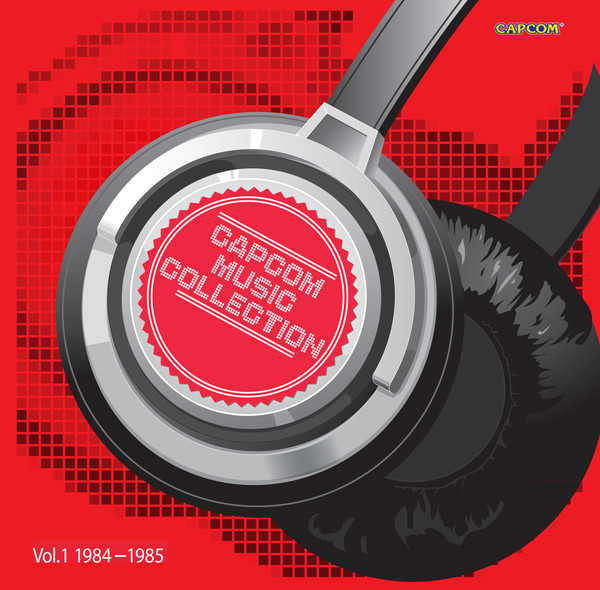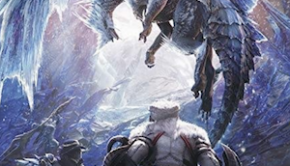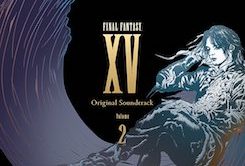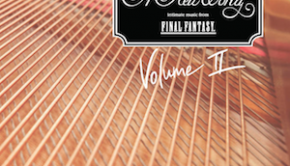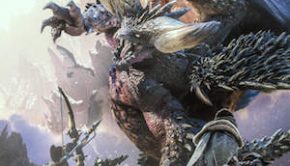Yuko Komiyama Interview: Embracing Monster Hunter
Yuko Komiyama is one of the most talented and versatile composers in the games industry. While at Capcom, she switched from producing the cool rock tracks of Mega Man X’s final outing to writing the worldly orchestrations of several Monster Hunter titles, winning hearts with her incredible soundtrack for Monster Hunter 3. After a short break from the industry, she is now a member of Tetsuya Shibata‘s multimedia music production company Unique Note.
Marking her return to music composition, Yuko Komiyama reflects on her background, influences, and works in this interview. She goes into detail about her experiences on the Mega Man and Monster Hunter franchises, including how she penned the orchestral anthems, vocal themes, and ethnic pieces for Monster Hunter 3. She concludes by giving an insight into what we can expect from her in the future.
Interview Credits
Interview Subject: Yuko Komiyama
Interviewer: Chris Greening
Translation & Localisation: Tetsuya Shibata, Ben Schweitzer
Editor: Chris Greening
Coordination: Tetsuya Shibata
Support: Don Kotowski
Interview Content
Chris: Yuko Komiyama, we deeply appreciate the opportunity to talk to you today. First of all, could you tell us about what led you to become a composer? What is your musical background, influences, and education?

Yuko Komiyama: When I was five, I began learning how to play the Electone, playing all kinds of different music: classical, pop, funk, fusion, and game music, among others. The electone allowed me to play pieces from a variety of genres, using the sounds that I liked. I think it’s a great instrument for improvisation. I think that it is thanks to my experience with the Electone that I can create music in a variety of genres with ease.
When I was young, I thought that I might want to teach the Electone myself, or else perhaps work in adding music to images, through movies, TV dramas, or video games.
Thinking that the only way to get involved in music as a career would be to go to a music college, I entered the Creative Performance Department at Soai University’s College of Music, studying composition, Electone performance technique, and methods of using computers for composition. In addition, I spent a little bit of time studying Western music history, piano, and voice as required by the department for a musical education. The curriculum for those four years of college was quite intensive, and I make use of the knowledge I developed during that time even today.
Chris: How familiar were you with gaming and game music before you started at Capcom?
Yuko Komiyama: When I was seven, my grandmother gave me a Famicom (Japanese NES) as a Christmas present, and that was how I began playing video games. I was bad at it, though, so I often ended up having fun watching my younger brother play instead.
The first time I came to know the name Capcom was through the Famicom version of Makaimura (Ghosts ‘n Goblins). It was a very difficult game, so I ended up with the idea that Capcom was a company that made difficult games. Later, I ended up playing or sitting alongside my brother watching him play Street Fighter, Final Fight, and a number of other games.
When I was 14, I was shocked to encounter Biohazard (Resident Evil) for the first time. More than anything, I was scared. I had always thought of video games as being fun, and it was the first game to make me feel fear. The reason was that the music was unlike anything I thought of as music. I remember thinking it was an amazing game.
After that, when I was a college student, I played Devil May Cry, and thinking about how cool the music and images both were, I began to consider writing music for video games as an interesting career.
Chris: Did this passion for Capcom games lead you to apply to the company back in 2003?
Yuko Komiyama: When searching for employment, I focused on trying out for Electone teacher positions, promotional work in the art world, and game music production jobs, applying to a number of companies. One of the companies I applied to was Capcom.
When the day arrived for Capcom to announce the results of their decision, no message came, and not even allowing myself the time to feel down about it, I skipped out on a Michel Camilo concert I had been planning to attend and spent the whole night applying to other video game companies. I remember how happy I felt when a phone call from Capcom came in several days later. But after I started working there, I vented to the head of my department “Hey! I missed out on a Michel Camilo concert because you were so late contacting me!”
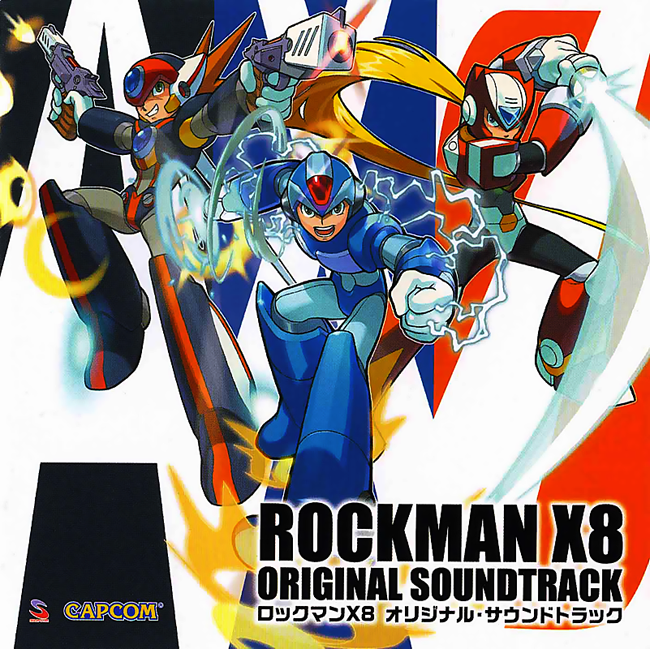
Chris: Could you share your experiences on your first video game project, Mega Man X7?
In July, three months after I had entered the company, Command Mission lead composer Shinya Okada-kun (who had arrived at the same time) and I were asked to write music for the high speed stages in Mega Man X7. I was told that the music would also be used in a Tokyo Game Show promotion, and I wrote it under my senior Seiko Kobuchi-san’s guidance. I had no knowledge of how to use a computer to create music, so I would come into the office even on my days off to learn more. The process of writing the music took roughly a month. In the end, I ended up handling the stage music, and Okada-kun the boss fight themes. I was overjoyed when I saw the final TGS footage.
Chris: You took lead role on the soundtracks for Mega Man X7, Mega Man X8, and Command Mission. How did you pay tribute to the series’ classic stylings? And at the same time, how did you still offer modern musical approaches and high-quality implementation?
Yuko Komiyama: X7 marked the series’ PS2 debut as well as the first appearance of Axl, so we wanted to bring a fresh element to the series in the form of electronic timbres. Each stage was given a particular tone color to match its own color. The director had asked for a progressive feel, so I tried to mix elements of progressive rock into the classic Mega Man X style, while creating good melodies as well.
The theme of X8 was “a return to our roots”, so I sought out the advice of X1’s Setsuo Yamamoto-san, and tried to recreate some of the coolness of X1 with a modern flavor. We brought back the guitar as the lead timbre, and, through discussions with Akemi Kimura-san [Editor’s Note: An alias of PlatinumGames’ Naoto Tanaka] regarding how to create the mix, we produced its sound through a combination of plugins and synth. I also tried to create a feeling of continuity by making use of motifs from X8’s theme in various scenes throughout the game. As main composer, I would decide on the overall direction of the music, and write stage, cutscene, and jingle themes, as well as music for various other scenes.
Command Mission was in production at almost exactly the same time I was working on Mega Man X8, and Okada-kun was heading the team as lead composer. The game was to be released simultaneously on PS2 and Gamecube, and I thought it sounded like quite a difficult assignment. On the other hand, being a Mega Man X RPG, the game featured new characters such as Cinnamon in addition to the franchise’s established cast, so it also seemed like quite a lively project. I worked on the music under Okada-kun’s direction. I had wanted to write some orchestral pieces, so I ended up working on Redips’s themes.
Chris: It would be interesting to hear you elaborate more about your visual inspirations for the Mega Man X titles. Could you tell us more? Do you have any particular favourites among the tracks you composed?
Yuko Komiyama: I think that in all of the games in the Mega Man X series, our approach has focused on letting the music reflect the feelings of the characters. X faces the dilemma that he hates to fight against the bosses, who are reploids like himself, but he has to fight because they are causing trouble. Zero is cool and wins through his strength, while Axl fights because he is too young to understand fear, which I think is really cool; I make a point of reflecting the characters’ feelings in the story scenes. More than anything, the world revolves around X, so I try to make sure that sense of liveliness and conflict can be felt in every scene. With the stage themes I want to make sure that players feel energized through the music’s melodies and motifs while playing the game.
The piece that has stuck with me more than any other is the theme that plays over X8’s ending. It has a simple melody and a lively atmosphere that I feel capture X’s personality perfectly; in my mind, I could say nothing more in words in regards to the Mega Man X series than I have said with that music.
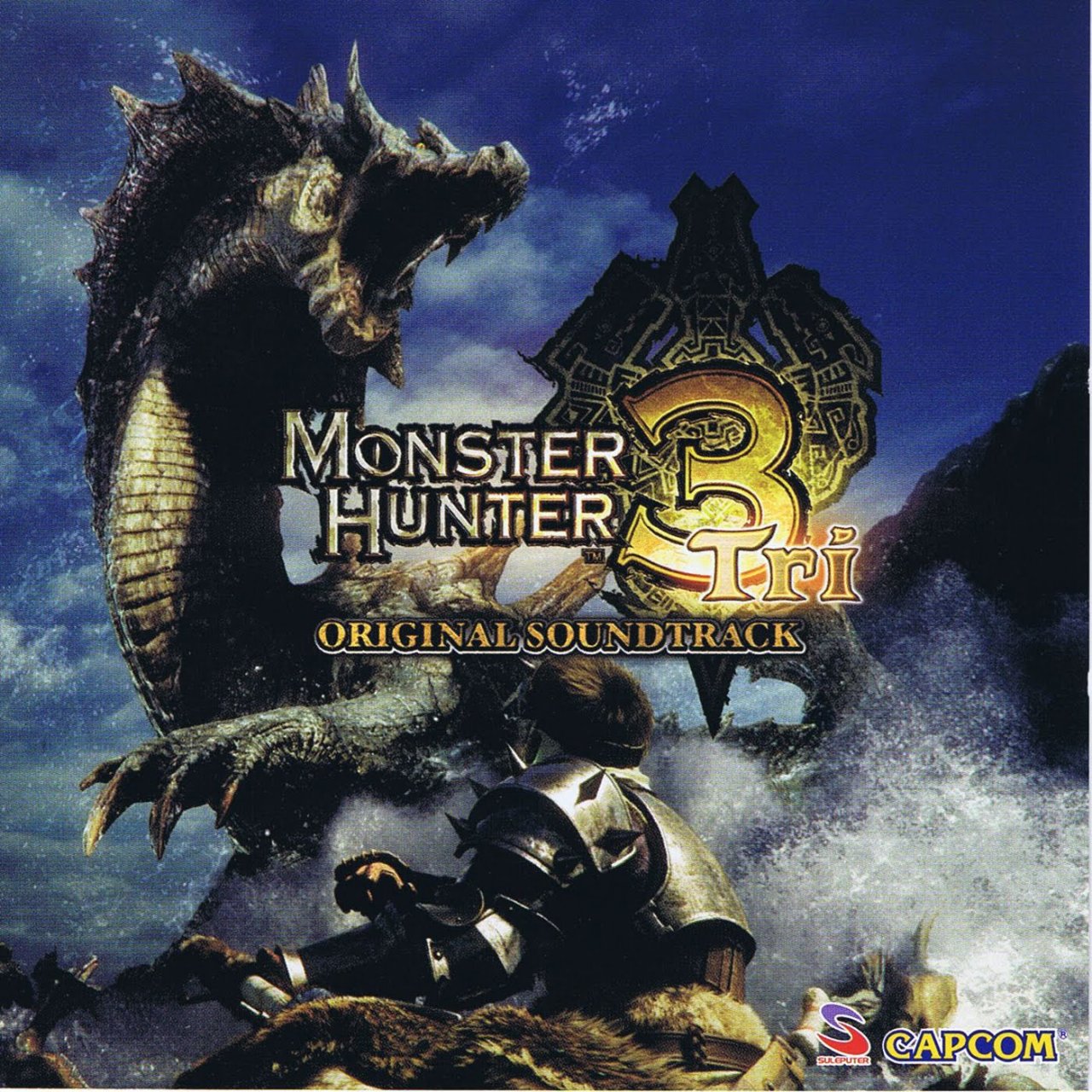
Chris: Moving to the Monster Hunter series, you simultaneously worked on Monster Hunter 2 and Monster Hunter Freedom. What was it like to switch from the primarily contemporary-based compositions of the Mega Man franchise to the orchestral sounds of the Monster Hunter franchise? How did you approach scoring these titles under the lead of Masato Kouda?
Yuko Komiyama: At the time, Shibata of Unique Note, who was my superior at Capcom, asked me to work on the Monster Hunter series, and I remember being reluctant but agreed because I didn’t have a choice. When I first saw Monster Hunter, I remember being shocked that the visuals I thought were simply cutscene footage turned out to be playable, and the music was so good that I felt I wanted to work on any game but that one. Momora-san, who worked on the sound effects, also gave off an unapproachable aura. When you actually talk to him he’s really quite nice, though.
The first piece I created for Monster Hunter 2 (dos) was the theme for Jumbo Village, but it was actually the first time I had studied ethnic music. Shibata gave me a lot of advice at the time, and after a month, I finally got the OK. After that I wrote a number of tracks for Monster Hunter Freedom‘s Felyne Kitchen and farms, so I spent all my time immersed in the fascinating world of Monster Hunter.
I didn’t create any battle tracks for either of these two games, so I didn’t have to change over to writing for orchestra, and I had the chance to listen to Kouda’s tracks and study what he had done. Kouda-san’s music truly sets the tone for the Monster Hunter series, so after giving him an idea of what kind of scene the music would be used in and what impression it should have, I would leave him to compose as he liked. When he provided such amazing music, I would lose a bit of self-confidence, wondering why I couldn’t compose so well.
Chris: While the Monster Hunter series has always featured impressive music, it is our opinion that your score for Monster Hunter 3 is the pinnacle of the series’ musical achievement. Did you intend to raise the bar with this one? How were you able to offer such rich orchestrations and convincing mixing for this release?
Yuko Komiyama: After working on Monster Hunter Frontier, Monster Hunter Freedom 2, and Monster Hunter Freedom Unite, I had become quite familiar with the fascinating world of the Monster Hunter games and then production began on Monster Hunter 3 (tri). The Monster Hunter series had always made use of the highest quality technology available, finding new ways to surprise players. Believing that the music for a main series title should also find new ways to surprise, I discussed my ideas with the sound and production teams.
It was around that time that I began studying orchestral music. I discussed the details of the mix with the engineers. With the battle themes in particular, I asked for a mix that would be able to retain the power of the sound of the monsters themselves when the music was played during a battle. The mix for the pieces we recorded in the Czech Republic was handled by an outside studio.
Chris: The main theme “To One With Life”, in particular, is a masterpiece. Could you tell us how you conceived this theme and got the emotions just right? What was it like to hear it performed both in the studio with the FILMharmonic and at the first orchestral concert with the Tokyo Philharmonic?
Yuko Komiyama: Before “To One With Life” was completed, the truth is that the main theme was a different piece entirely. It was a heroic piece along the lines of “Proof of a Hero”, and I had already received the OK from the director. Later, while Monster Hunter 3 (tri) was in production, I played Monster Hunter Freedom 2, and hearing “Proof of a Hero” made me begin to think about writing something for 3 (tri) that would be just as good. I asked the director for permission to rewrite the theme once more.
After my request was granted, I began to discuss the finer points of the nature of the world of Monster Hunter and the thematic elements of the game, and the director said “I suppose you could say 3 (tri) has a very mother-like worldview.” I had no idea what he was talking about, but looking at the already-completed storyboards for the opening movie, my eyes glanced upon a panel of Rathalos flying in the sky above a solitary island, looking out over the world of Monster Hunter, and I felt “this is it!” The way that monsters, nature, hunters, and the people of the towns and villages live, the way that life begins, the way that it ends, I got the impression that everything that happens in the world of Monster Hunter was taken into that tender, motherly embrace, and I replaced the heroic theme with one that conveyed these impressions of kindness and majesty.
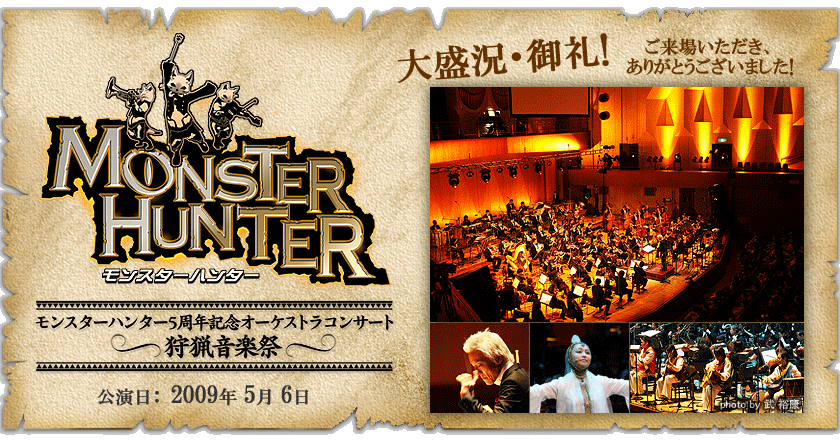
Chris: What was it like to hear the main theme performed both in the studio with the FILMharmonic and at the first orchestral concert with the Tokyo Philharmonic?
Yuko Komiyama: When I heard the piece performed by the FILMharmonic Orchestra, I was surprised. It had such incredible dynamic range and power. I was amazed by the expressiveness of the music, and even though the battle themes were violent, a piece like “To One With Life” is upbeat and carefree, and I had not expected that I would hear it performed by fellow humans. The conductor, Adam Klemens, had an excellent understanding of the piece. After the first performance he came back to the engineering room and said “I think we’ll do one more take and leave it there”, and I agreed with him, but at that moment, I was struck by the truth of the idea that, even without words, music truly can communicate across national boundaries.
The Tokyo Philharmonic Orchestra played with the utmost precision. I was happy to hear my music played in a concert hall for the first time, and it was a moving experience. The conductor, Hirofumi Kurita-san, presented this game music so that it could be enjoyed as a work of music. In-game, the music has to be played at a certain tempo, but here the orchestra could play with freer and more lyrical expression.
Chris: In addition to that orchestral concert, the Monster Hunter series has been celebrated with numerous other concerts and arranged albums over the years. Were you involved in any of these productions behind-the-scenes? What are your thoughts on the various albums that have been released?
Yuko Komiyama: For the first concert Shibata and I put forward a number of ideas on everything from planning to performance. Subsequent concerts have taken place since I left Capcom, so I haven’t been directly involved, though I have attended every single one.
I worked on a number of arranged albums as supervisor. I’ve always enjoyed being able to give others the chance to hear my music in new ways, whether remixed or arranged for music box.
Chris: As a songwriter, you were also behind Monster Hunter 2’s “Song of Beginning” and Monster Hunter 3’s “Everlasting Words”. Could you tell us about what inspired these songs? What was it like to compose them and record with Ikuko Noguchi?
Yuko Komiyama: Among the Wyverians, there is a rare tribe that preserves songs, transmitting them and their singing from generation to generation, and these songs are said to have special powers, serving as a bridge between the world of Monster Hunter and other worlds. Now that there are no more sacrifices, they heal the hunters and the people of the towns and villages. These people, called “Divas”, made their first appearance in Monster Hunter 2 (dos). That was when “Song of Beginning” was written. Kouda-san wrote the music, the director wrote lyrics in Japanese, and I transformed them into a fictional language.
I discovered the singer ikuko-san through the internet. I opened my computer at 9:30 in the morning, and I found her in the middle of the night at 1:00. She was a perfect fit for the background laid out for the character, and the director gave me the OK. When I met her, I found she really was a mysterious person, just like our game’s “Divas”.
Later on, ikuko-san made an appearance at the Monster Hunter Festa event, and hearing her sing on stage made me fall in love with her voice all over again to the point of tears. That was in the middle of production on Monster Hunter 3 (tri), and I began to think about writing a song for our diva, ikuko-san. Even though the diva character doesn’t actually appear in 3 (tri), I still wanted her singing to be in the game, and so I wrote “Everlasting Words”. The four voices in the song represent Sea, Earth, Sun, and Greenery, conveying the message that the harmony of these elements gives birth to new life.
Chris: Your ethnic instrument work on the Monster Hunter series is also particularly inspired. How did you learn to write for ethnic instruments and how important is authenticity to you? How do you integrate these instruments into the Monster Hunter series?
Yuko Komiyama: To me personally, the Monster Hunter series connotes “life”, and just as on Earth, this life takes many forms. I think of the ethnic instruments of a given region, whether hot or cold, as something that came out of the way of life lived by the people in that particular environment. It is a very important element for expressing the Monster Hunter world.
I was not very familiar with the details of ethnic instrumentation, so I spent a lot of time studying, reading books and listening to the music produced by ethnic instruments from a variety of countries. As my studies progressed and I came to understand that these instruments came out of their own environment and culture, it felt easier to familiarize myself with them.
Chris: After wrapping up work on Monster Hunter 3 and penning an arrangement of Ghosts ‘n Goblins, you left Capcom and thereafter joined Unique Note. What inspired these moves? What can we expect from you in the future?
Yuko Komiyama: Owing to changes in my life, I stepped away from music production for a time, but of course I ended up feeling the need to compose again, so I started work again independently under the banner of comymusic, writing for commercials and television programs. Then one day Shibata contacted me and I ended up working for Unique Note. Right now I’m working on composing music for a certain project together with the other members of Unique Note, including Aoki, but since I was away from composing for so long, I’ve been getting advice from others and honing my skills to get back into it. I hope to be able to match the needs of today, whether in TV or video games, by providing high quality music.
Chris: Many thanks for your time today, Yuko Komiyama. We’re excited to hear the results of your return to the games industry. Is there anything else you’d like to say about your life and works? In addition, do you have any message to your fans around the world?
Yuko Komiyama: When I was a child I never imagined that my music would be heard by people all over the world, and I am very grateful that since my time at Capcom, I have been able to reach listeners in a number of ways. The fact that there are people out there reading this article on Yuko Komiyama means that there must be people who are interested in me and my music, which makes me feel embarrassed but also quite happy. Thank you all very much. I’m going to try to make sure the music I create from here on surprises you beyond anything I have done before, and I thank you for your continued interest in my work.
Posted on July 8, 2014 by Chris Greening. Last modified on July 8, 2014.

